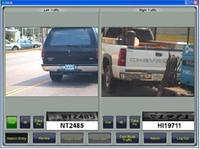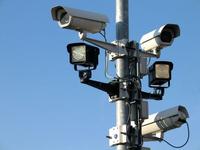-
New Silicon Valley focus on cybersecurity
The last time Silicon Valley focused on cybersecurity was in the 1990s. That focus saw the emergence of two giants: McAfee and Symantec. The two companies remain the most recognizable household names, thanks to their traditional firewall and anti-virus products. Now they find the arena which they thought was their own encroached from two sides. On one side there are tech giants like Hewlett-Packard and Cisco Systems, which see new revenue opportunity in cybersecurity. On the other side there is a rush of start-ups backed by large investments of venture capital.
-
-
Surveillance programs prompt start-up entry into privacy protection market
Revelations of the surveillance programs of the National Security Agency(NSA) and the U.K. Government Communications Headquarters(GCHQ) have sparked technical innovations, legal challenges, and pursuits of political reforms in the United States and Britain. While some established providers of secure e-mails have bowed out, new companies are moving in to offer consumers protection from prying.
-
-
More states move to limit LPR use
Law-enforcement units across the United States have been using license plate readers (LPRs) to monitor vehicles on public roads in order to locate missing individuals, investigate murderers, or track hit-and-run drivers. Privacy advocates are concerned with the wholesale storage of license plate information, and the fact that some municipalities have no limits on how long plate numbers can be stored. LPRs proponents are worried that the recent revelations about the NSA surveillance programs make it difficult for LPRs and other law-enforcement technology to get a fair hearing.
-
-
Wisconsin legislature considering restriction on LPRs

State legislators in Wisconsin have proposed a law to limit the use of license plate readers, drawing criticism from local law enforcement. Republican state Representative David Craig, the sponsor of the proposed legislation, said: “The vast majority of [the LPR] images are becoming nothing more than a database of the whereabouts of average citizens. The time has come to ensure the civil rights of citizens are not being violated, while also ensuring law enforcement has the tools needed to effectively enforce our state’s laws.”
-
-
New search tool finds you, even in untagged photos
A new algorithm designed at the University of Toronto has the power profoundly to change the way we find photos among the billions on social media sites such as Facebook and Flickr. The search tool uses tag locations to quantify relationships between individuals, even those not tagged in any given photo.
-
-
Exploring “culture of surveillance” in the United States
Recent revelations that the National Security Agency (NSA) has been analyzing the communication records of all U.S. citizens have many talking about the topic of “mass surveillance” by the government. A University of Kansas sociologist who has been documenting what he calls our “culture of surveillance” for nearly twenty years argues, however, that these developments are part of deeper social and cultural changes going on for quite some time. Professor William Staples focuses his attention on the relatively mundane techniques of keeping a close watch of people — what he has dubbed the “Tiny Brothers” — which are increasingly present in the workplace, school, home, and community.
-
-
Hacktivists have been stealing information from U.S. computers for a year
The FBI reports that activist hackers linked to the group Anonymous have been accessing the computers of numerous government agenciesfor almost a year, and stealing sensitive information. The hackers took advantage of a flaw in Adobe Systems’ColdFusion software to launch a series of intrusions which began December 2012, and then left “back doors” to return to the computers multiple times.
-
-
A civilian may be appointed to head the NSA
The Obama administration is considering appointing a civilian to lead the National Security Agency (NSA). If carried out, the move would install a civilian to lead the agency for the first time since its founding in 1952. Keith Alexander, the current director of the NSA, is a four-star Army general. He plans to retire next spring.
-
-
Ohio lawmakers want to limit use of drones by law enforcement
State lawmakers in Ohio want to limit the use of drones by law enforcement agencies in the state.A proposed bill would require law enforcement to obtain a search warrant before using drones. It would prohibit law enforcement from using drones to search for missing persons, locate illegal marijuana operations, or perform several actions officers currently handle with helicopter surveillance.
-
-
Advanced police surveillance technologies pose significant privacy concerns

Much of the attention on surveillance in the media focuses on the National Security Agency (NSA), but there is not a lot of scrutiny on local domestic surveillance. In 1997, about 20 percent of police departments in the United States used some type of technological surveillance. By 2007, that number had risen to more than 70 percent of departments. Experts in criminal law and information privacy warn that the widespread use of advanced surveillance technologies such as automatic license plate readers, surveillance cameras, red light cameras, and facial recognition software by state and local police departments, combined with a lack of oversight and regulation, have the potential to develop into a form of widespread community surveillance, which ought to pose significant privacy concerns to law-abiding citizens.
-
-
U.S. tech companies could go “dark” to regain trust
With each new revelation of the scope of the American National Security Agency’s spying, perceptions of the importance of privacy are hardening around the world. There is thus a motivation for major technology companies to provide a verifiably secure means of allowing users to communicate securely without an ability for the companies to provide access to security agencies, even if requested to. Two companies, Silent Circle and Lavabit, have come together to form the Dark Mail alliance in an attempt to do exactly this.
-
-
U.S. tech companies increase lobbying efforts related to surveillance, NSA
Technology firms Apple, Google, Facebook, and Microsoft, among other tech powerhouses, are quietly increasing lobbying efforts directed at government surveillance laws as they seek to have a say in what Congress does regarding surveillance reforms and National Security Agency (NSA) programs. Traditionally, tech firms have not pushed for restrictions on the ability of the U.S. intelligence community to collect data, and it is not clear what position these industry leaders will take, whether they plan to take a position at all, or whether they will present lawmakers with a united industry front.
-
-
Backlash: growing interest in counter-surveillance tools
The revelations about the NSA surveillance programs has prompted what some see as high-tech civil disobedience: a growing number of products and applications aiming to limit the NSA’s ability to access encrypted e-mails, obtain phone records, and listen to phone conversations.
-
-
Director of U.K. intelligence spiritedly defends surveillance programs
The chief of MI5, Britain’s domestic intelligence agency, said last week that recent leaks of government surveillance capabilities had given “the advantage to the terrorists.” Andrew Parker said that “What we know about the terrorists, and the detail of the capabilities we use against them, together represent our margin of advantage. That margin gives us the prospect of being able to detect their plots and stop them. But that margin is under attack.”
-
-
Web sites secretly track users without relying on cookies
Device fingerprinting, also known as browser fingerprinting, is the practice of collecting properties of PCs, smartphones, and tablets to identify and track users. For the vast majority of browsers, the combination of these properties is unique, and thus functions as a “fingerprint” that can be used to track users without relying on cookies. Researchers have discovered that 145 of the Internet’s 10,000 top Web sites use device fingerprinting to track users without their knowledge or consent.
-
- All
- Regional
- Water
- Biometrics
- Borders/Immig
- Business
- Cybersecurity
- Detection
- Disasters
- Government
- Infrastructure
- International
- Public health
- Public Safety
- Communication interoperabillity
- Emergency services
- Emergency medical services
- Fire
- First response
- IEDs
- Law Enforcement
- Law Enforcement Technology
- Military technology
- Nonlethal weapons
- Nuclear weapons
- Personal protection equipment
- Police
- Notification /alert systems
- Situational awareness
- Weapons systems
- Sci-Tech
- Sector Reports
- Surveillance
- Transportation
Advertising & Marketing: advertise@newswirepubs.com
Editorial: editor@newswirepubs.com
General: info@newswirepubs.com
2010-2011 © News Wire Publications, LLC News Wire Publications, LLC
220 Old Country Road | Suite 200 | Mineola | New York | 11501
Permissions and Policies
Editorial: editor@newswirepubs.com
General: info@newswirepubs.com
2010-2011 © News Wire Publications, LLC News Wire Publications, LLC
220 Old Country Road | Suite 200 | Mineola | New York | 11501
Permissions and Policies
